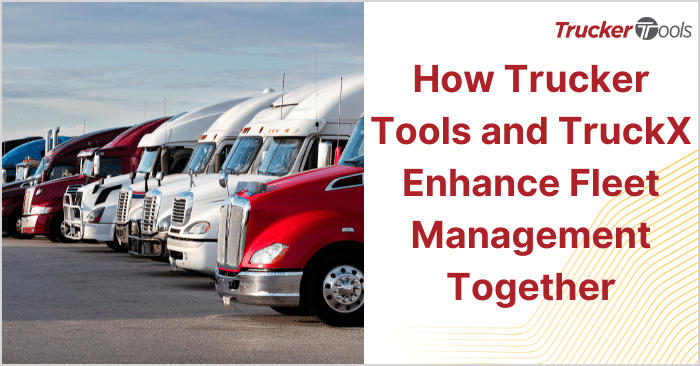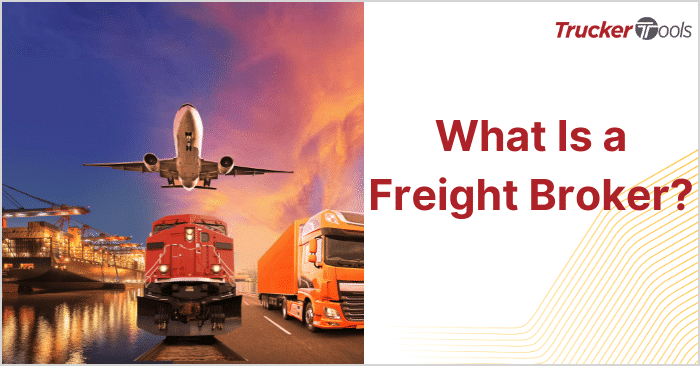Load boards play an important role in the transportation industry. In simple terms, load boards function as online freight marketplaces through which freight brokers can search for and book truck capacity — and where carriers/owner operators can search for and book loads for their trucks. Load boards also facilitate communication between owner operators/carriers and freight brokers.
In this blog, you’ll learn more about the valuable role load boards play in the transportation industry, different types of load boards, their advantages and disadvantages, and when they should be used.
What Are Load Boards and How Do They Work?
A load board is an online marketplace that can be accessed using a software platform, mobile app and/or website. Load boards are the place where brokers post their uncovered loads and where carriers/owner operators find the best paying loads. Ultimately, load boards facilitate communication between brokers and carriers, allowing them to communicate with one another digitally. Some but not all load boards require carriers, owner operators and/or freight brokers to pay a monthly or yearly subscription fee for access.

Carriers and owner operators use load boards to easily find loads for their trucks. Carriers can post their available trucks to load boards and wait for freight brokers to contact them about their available truck capacity.
Freight brokers use load boards to easily find carriers who have trucks available to move their shippers’ freight. Freight brokers also have the option to post loads to load boards and wait for carriers/owner operators to contact them about their freight.
Load Board Advantages and Disadvantages
Load boards are extremely popular within transportation because they provide clear and immediate advantages to carriers and freight brokers.
Advantages
Load boards provide the following advantages for carriers and brokers:
- Help carriers find loads for their trucks quickly.
- Help freight brokers find trucks for their shippers’ freight quickly.
- Reduce the number of phone calls carriers receive from brokers and the number of outbound phone calls brokers must make to carriers.
- Accessible 24 hours/day and 365 days/year with a web browser or app.
- Easy to use and don’t require advanced technical skills.
- Ability to search by lane, type of freight and other factors to narrow search results.
- May include automatic matching tools for faster search results.
- May offer additional services for carriers such as factoring/financing, message boards and other carrier-focused services.
- May include additional features for brokers such as FMCSA verification, the ability to make notes on carriers, information on financing and other broker-focused services.
- Can integrate with broker transportation management systems for faster, more convenient access.
- Help freight brokers, carriers and owner operators grow their businesses.
- Digitizes rate negotiations.
Disadvantages
While there are many advantages to using load boards, there are a few disadvantages of using load boards:
- Some load boards aren’t real time, which means brokers or carriers may be viewing outdated information.
- Some load boards don’t have fraud-prevention measures in place, which may lead to fraudulent posts on the load board.
- Some load boards are so large with so many different companies bidding that freight rates end up being much lower than true market rates.
Are Load Boards Worth Using?
Now that you have an answer to the question of “What is a load board?,” you may be wondering if they are worth using. The answer is a resounding “Yes!” Load boards are the place for carriers, owner operators and freight brokers to do business with one another. Without load boards, carriers and brokers would need to call each other to find trucks and loads, which takes much more time than quickly searching a load board online or with an app.
Load boards also help carriers and brokers get the information they need as quickly as possible to keep their operating costs as low as possible. Load boards help carriers and freight brokers make new connections with one another that can be building blocks for future growth, as well.
When Should Load Boards Be Used?
As a carrier or owner operator, load boards should be part of your long-term strategy if you don’t already have contracts established with freight brokers or directly with shippers. Load boards are a great place to start building relationships and your book of business. Even if you are a contracted carrier, you may want to use load boards for backhauls/reloads or when you want to branch out into new shipping lanes and expand your business.
If you’re a freight broker, load boards should be your go-to for spot market freight. Using a load board can help you quickly find and book truck capacity so that you can move onto your next task. Load boards also are a great place for brokers to connect with new carriers and owner operators. After a carrier or owner op runs one of your loads successfully, you may be able to bring them into your network for the long-term, which is important if you have a lot of in-network carrier turnover or want to scale your business.
Where Do Load Boards Get Loads and Are There Different Types of Load Boards?
Generally speaking, there are two ways that freight may make its way onto a load board. A load may be manually added to the load board by the freight broker or may be automatically posted to a load board via an integration between the load board and the broker’s TMS. Most carrier capacity that is posted to load boards is posted manually by carriers or owner operators.
There are two different types of load boards in use in the transportation industry. The first is a traditional load board that requires the carrier, owner operator or broker to manually post their truck(s)/freight. This first type of load board also requires posters to remove their postings from load boards once they’ve gotten what they needed.
The second type of load board used in transportation is a real-time load board or smart load board. Smart load boards integrate with the technology used by freight brokers, owner operators and carriers so that when a load or truck is taken by someone else, it’s automatically removed from the marketplace. Smart load boards also often use digital freight matching technology to automatically match open loads with open trucks based on past history and preferences. Smart load boards usually are easier to use and more efficient than traditional load boards.






